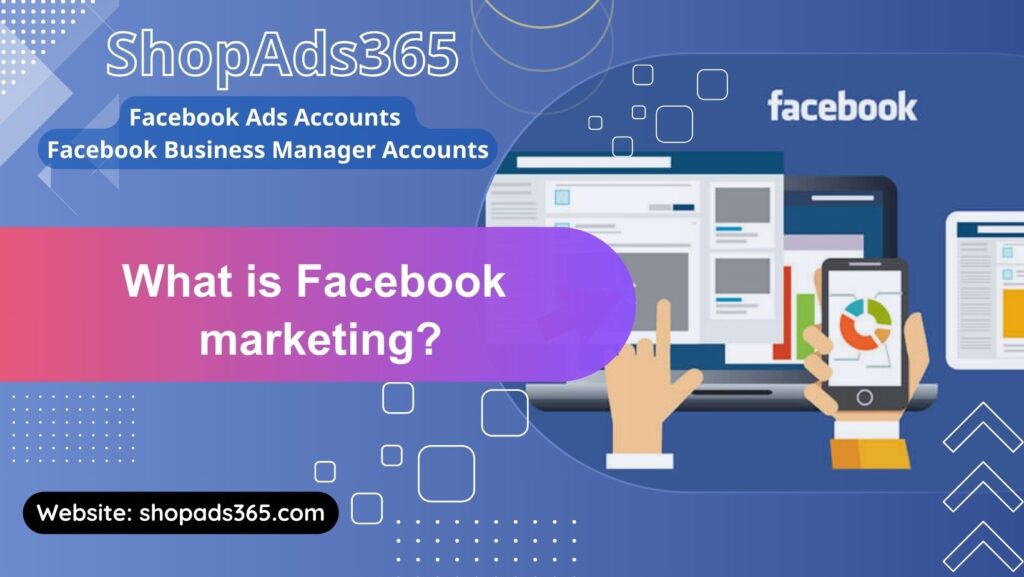Understanding Facebook Marketing
Facebook marketing refers to the use of the Facebook platform for promoting products, services, or brands to a targeted audience. With over 2.8 billion monthly active users, Facebook has become an essential tool for businesses to reach and engage with potential customers.

The Benefits of Facebook Marketing
Facebook marketing offers several advantages for businesses of all sizes:
- Wide Reach: With billions of users, Facebook provides a vast potential audience for businesses to connect with. It allows businesses to target specific demographics, interests, and behaviors to ensure their message reaches the right people.
- Engagement: Facebook offers various engagement features such as likes, comments, and shares. This allows businesses to interact with their audience and build a loyal community around their brand.
- Cost-effective: Compared to traditional advertising channels, Facebook marketing can be more cost-effective. Businesses have the flexibility to set their budget and adjust their campaigns based on performance.
- Analytics and Insights: Facebook provides detailed analytics and insights about the performance of marketing campaigns. This data allows businesses to measure their success, make informed decisions, and optimize their strategies.
- Targeted Advertising: Facebook’s advanced targeting options enable businesses to reach their ideal customers. They can define their audience based on demographics, interests, behaviors, and even their interactions with the business.
Types of Facebook Marketing
There are various ways businesses can utilize Facebook for marketing purposes:
- Organic Posts: Businesses can create and share content on their Facebook page for free. This includes informational posts, updates, images, videos, and links. However, organic reach has declined in recent years, making it important to supplement with paid advertising.
- Facebook Ads: Facebook offers a powerful advertising platform that allows businesses to create targeted ad campaigns. They can choose from various ad formats such as image ads, video ads, carousel ads, and more. Facebook Ads provide precise targeting options and offer robust analytics to measure campaign performance.
- Facebook Groups: Businesses can create or join Facebook groups related to their industry or niche. This allows them to engage with a specific community, share valuable content, and establish themselves as industry experts.
- Facebook Events: Businesses can create and promote events on Facebook. This is especially useful for hosting webinars, workshops, product launches, or other offline/online events. Facebook Events help generate awareness, drive attendance, and facilitate communication with attendees.
- Messenger Marketing: With Facebook Messenger, businesses can engage with customers through personalized conversations. Messenger marketing involves using chatbots or manual messaging to provide customer support, send targeted offers, and nurture leads.
Best Practices for Facebook Marketing
To make the most out of Facebook marketing, businesses should consider the following best practices:
- Define Clear Goals: Before starting any Facebook marketing campaign, it’s important to define clear goals and objectives. Whether it’s increasing brand awareness, driving website traffic, or generating leads, having specific goals will help guide the strategy.
- Create Compelling Content: High-quality and engaging content is key to capturing the attention of Facebook users. Businesses should focus on creating content that is informative, entertaining, and relevant to their target audience.
- Use Eye-Catching Visuals: Visual content such as images and videos tend to perform better on Facebook. Businesses should invest in creating visually appealing content that grabs the attention of users as they scroll through their newsfeed.
- Test and Optimize: Facebook provides robust analytics and testing capabilities. Businesses should regularly monitor the performance of their campaigns, test different ad formats, targeting options, and messaging to optimize their results.
- Engage with the Audience: Building a relationship with the audience is crucial for successful Facebook marketing. Businesses should actively respond to comments, messages, and reviews, showing that they value their customers’ feedback and are committed to providing excellent customer service.
In Conclusion
Facebook marketing offers businesses a powerful platform to reach and engage with their target audience. By leveraging the various tools and features provided by Facebook, businesses can increase brand visibility, drive traffic, generate leads, and ultimately grow their business.
